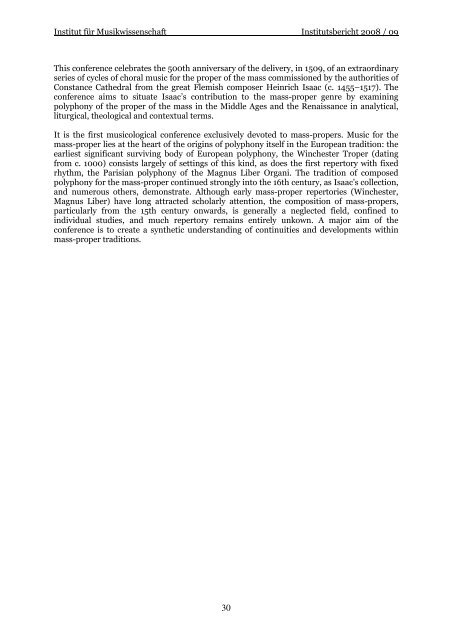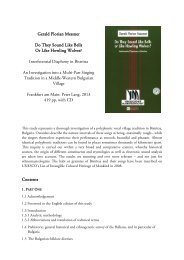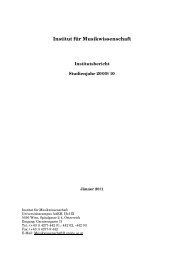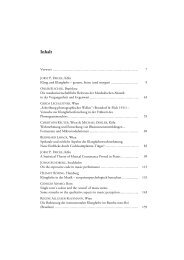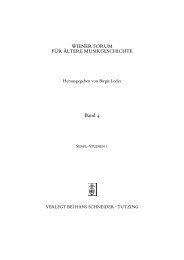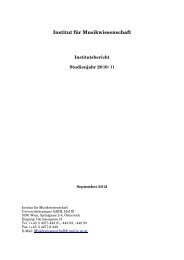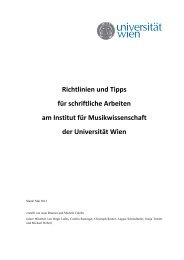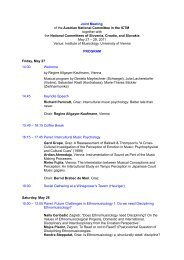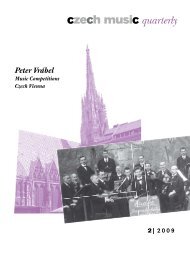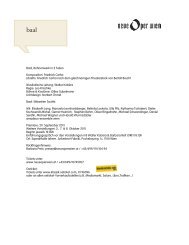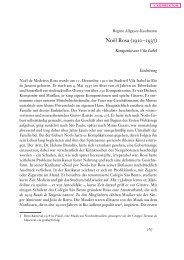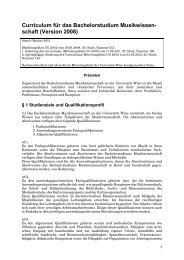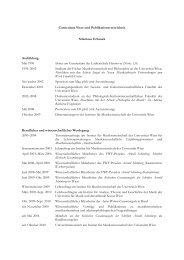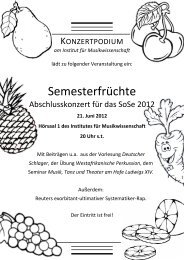Jänner 2010 - Institut für Musikwissenschaft - Universität Wien
Jänner 2010 - Institut für Musikwissenschaft - Universität Wien
Jänner 2010 - Institut für Musikwissenschaft - Universität Wien
Sie wollen auch ein ePaper? Erhöhen Sie die Reichweite Ihrer Titel.
YUMPU macht aus Druck-PDFs automatisch weboptimierte ePaper, die Google liebt.
<strong>Institut</strong> <strong>für</strong> <strong>Musikwissenschaft</strong> <strong>Institut</strong>sbericht 2008 / 09<br />
This conference celebrates the 500th anniversary of the delivery, in 1509, of an extraordinary<br />
series of cycles of choral music for the proper of the mass commissioned by the authorities of<br />
Constance Cathedral from the great Flemish composer Heinrich Isaac (c. 1455–1517). The<br />
conference aims to situate Isaac’s contribution to the mass-proper genre by examining<br />
polyphony of the proper of the mass in the Middle Ages and the Renaissance in analytical,<br />
liturgical, theological and contextual terms.<br />
It is the first musicological conference exclusively devoted to mass-propers. Music for the<br />
mass-proper lies at the heart of the origins of polyphony itself in the European tradition: the<br />
earliest significant surviving body of European polyphony, the Winchester Troper (dating<br />
from c. 1000) consists largely of settings of this kind, as does the first repertory with fixed<br />
rhythm, the Parisian polyphony of the Magnus Liber Organi. The tradition of composed<br />
polyphony for the mass-proper continued strongly into the 16th century, as Isaac’s collection,<br />
and numerous others, demonstrate. Although early mass-proper repertories (Winchester,<br />
Magnus Liber) have long attracted scholarly attention, the composition of mass-propers,<br />
particularly from the 15th century onwards, is generally a neglected field, confined to<br />
individual studies, and much repertory remains entirely unkown. A major aim of the<br />
conference is to create a synthetic understanding of continuities and developments within<br />
mass-proper traditions.<br />
30


